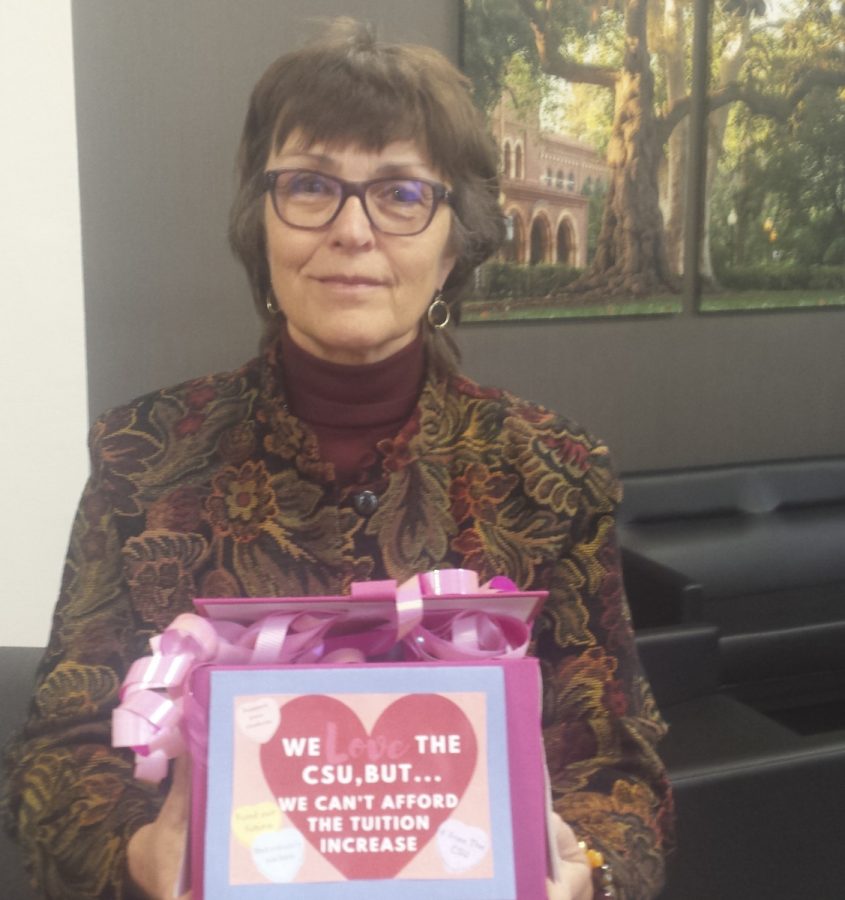Three potential student fee increases adding up to $380 per year are currently up for discussion at four upcoming open forums.
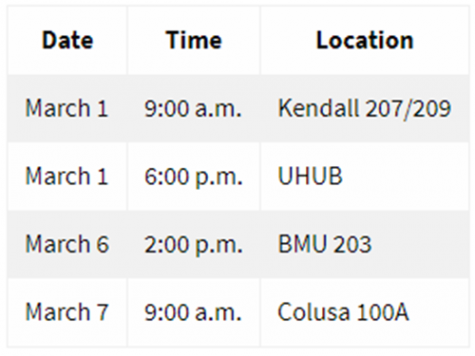
Students have started organizing to voice their disapproval over compounding and seemingly sudden cost increases to attend classes, and question the processes involved that leave them with little say in the matter.
Administrators have responded, detailing the purposes of the proposed campus fee adjustments online for all to see and leave feedback, as well as discussing why they believe fee increases, are needed. Presentations have also been held at past meetings with student council representatives, and are planned for the four upcoming open forums.
The forums are designed for students to voice their opinions to Associated Students’ officers and the university’s administrators. These meetings will also give students an opportunity to submit written feedback. This feedback will be compiled into an advisory document which A.S. and President Gayle Hutchinson will use to make their decision. Students can have their opinions added to the discussion through vocal and written feedback at forums.
Hutchinson, however, holds the final say in whether or not to go forward with the proposed fee increases which total $380 per year. The proposal also has a planned gradual increase which will total to $700 per year after five years.
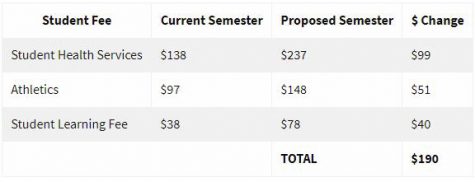
Hutchinson says she is taking all student feedback into consideration.
“Student voice is very important to me,” she said, “so this decision has not been made, this is not a done deal. This is about collecting information so that we can make the best-informed decision possible.”
“I’m doing the best I can to keep on hearing from students; in fact this was delivered to me today (Monday) from students,” Hutchinson said, reaching forward to a brightly decorated and ribonned pink box filled with neatly arranged comments from students with feedback about the increases.
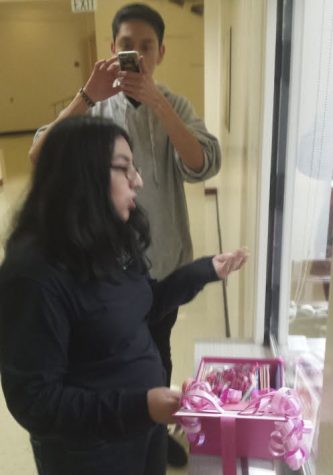
“I’ve already started reading them,” she said. “I’m going to carry this to Sacramento with me and share this (with) our legislators who I will be seeing next week to talk about why the state should be supporting higher education.”
The Chico Chapter of Students for Quality Education (SQE), a student-run group that pushes for transparency and equality in the university, is opposed to the proposed fee increases. Members of their group collected, decorated and delivered the box full of comments from students to the president’s office.
SQE members argue that if these fee increases pass, they will put an unfair burden on students financial security. They also argue that students have no guarantee their voice actually matters.
While the advisory report from the compiled feedback will be available to read online, the feedback itself will not.
Alejandro Alfaro Ramirez, a SQE member, said he thought that making up for a lack of funding by charging the students more “is very uncreative” at an academic senate meeting where he acted as the Diversity and Inclusion liaison. He suggested administrators look into other options like lowering some of their six-figure salaries or spending reserves to help struggling students and departments.
At a press conference organized by the group, Jamie Cabrera of SQE, said she was worried that, “There is no system place that says that we know that our comments at these forums are going to count for anything at all.”
“A referendum would have ensured the student voice was better heard,” Cabrera said, and that a vote “is more transparent.”
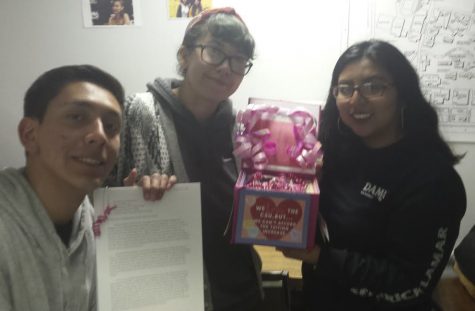
Hutchinson said she chose to use an alternative consultation rather than having a referendum vote for the fee increases because “it allows for broader student input.”
Students have more time to submit feedback in this manner she said.
“It also allows me to have a series of meetings, an online survey and a number of venues for students to really weigh-in and provide me with their concerns,” she said.
The feedback will not be released Hutchinson said, because the survey was designed to be anonymous so students would feel more free to share.
At the end of the day, the referendum vote and alternative consultation approaches are both only “advisory measures” to the president according to CSU Executive Order 1107 Hutchinson said.
“The president is the decision-maker on campus,” she said. But Hutchinson hopes that students trust her when she says she takes the feedback seriously.
“Any president who believes in shared governance, like I do, really wants these recommendations and input. This is a way to really engage the campus, whereas I don’t feel we would really have as deep of a conversation about it, if we had gone to referendum,” Hutchinson said.
She was unsure why past administrations did not address these problems sooner, but she doesn’t place any fault on them and instead is looking forward.
“I think at this point it’s about looking at our current situation and what we need to go forward to make sure we provide students with the best services possible.”
Josh Cozine can be reached at newseditor@theorion.com or @joshcozine on Twitter.





